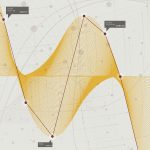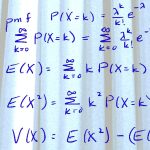This is a basic course in designing experiments and analyzing the resulting data. The course objective is to learn how to plan, design and conduct experiments efficiently and effectively, and analyze the resulting data to obtain objective conclusions. Both design and statistical analysis issues are discussed. Opportunities to use the principles taught in the course arise in all … [Read more...] about Experimental Design Basics
Data Science
Using SAS Viya REST APIs with Python and R
SAS Viya is an in-memory distributed environment used to analyze big data quickly and efficiently. In this course, you’ll learn how to use the SAS Viya APIs to take control of SAS Cloud Analytic Services from a Jupyter Notebook using R or Python. You’ll learn to upload data into the cloud, analyze data, and create predictive models with SAS Viya using familiar open source … [Read more...] about Using SAS Viya REST APIs with Python and R
Introduction to the Tidyverse
This course introduces a powerful set of data science tools known as the Tidyverse. The Tidyverse has revolutionized the way in which data scientists do almost every aspect of their job. We will cover the simple idea of "tidy data" and how this idea serves to organize data for analysis and modeling. We will also cover how non-tidy can be transformed to tidy data, the data … [Read more...] about Introduction to the Tidyverse
Statistical Inference for Estimation in Data Science
This course introduces statistical inference, sampling distributions, and confidence intervals. Students will learn how to define and construct good estimators, method of moments estimation, maximum likelihood estimation, and methods of constructing confidence intervals that will extend to more general settings. This course can be taken for academic credit as part of CU … [Read more...] about Statistical Inference for Estimation in Data Science
Bayesian Statistics: Mixture Models
Bayesian Statistics: Mixture Models introduces you to an important class of statistical models. The course is organized in five modules, each of which contains lecture videos, short quizzes, background reading, discussion prompts, and one or more peer-reviewed assignments. Statistics is best learned by doing it, not just watching a video, so the course is structured to help you … [Read more...] about Bayesian Statistics: Mixture Models






